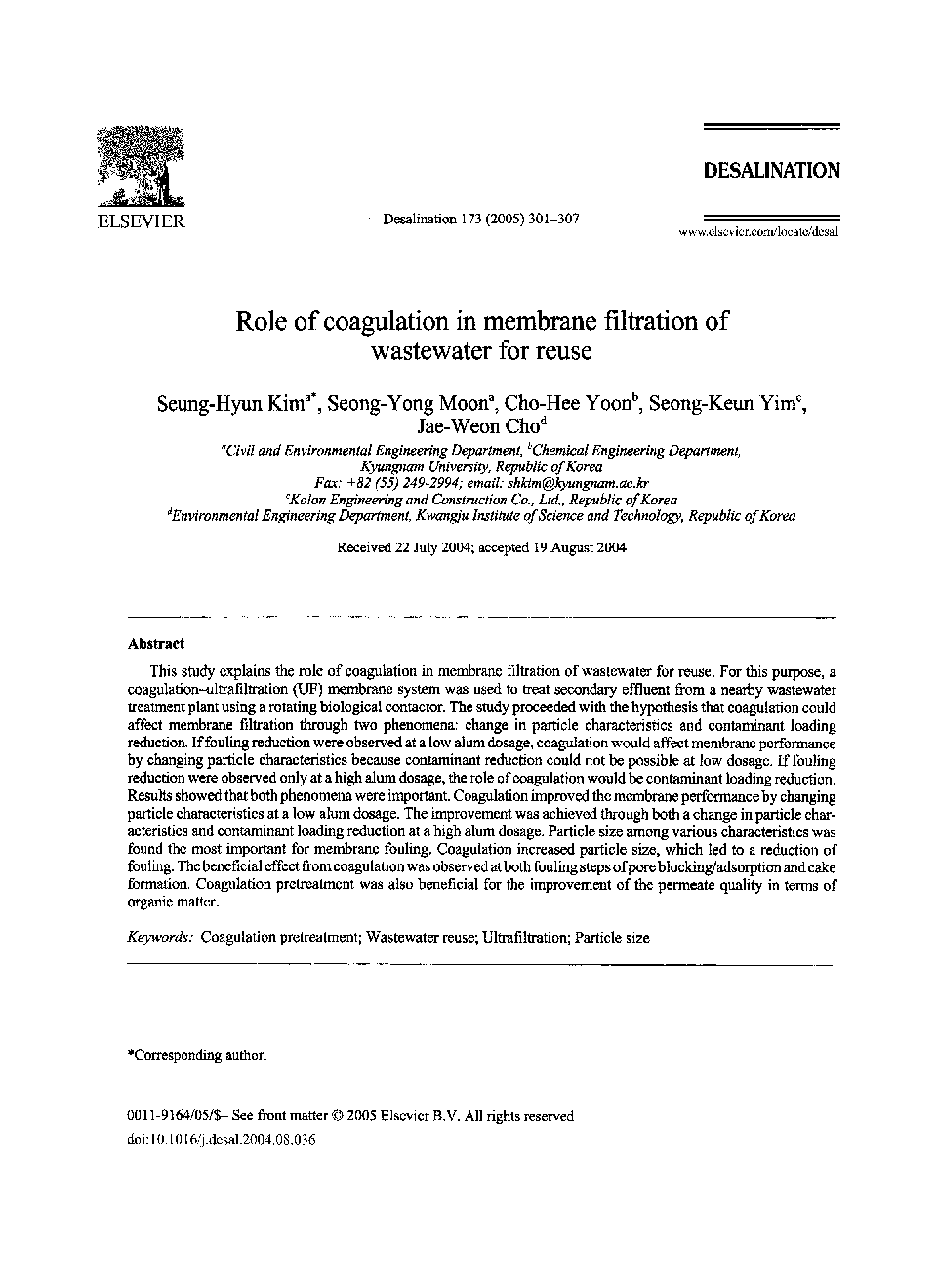| کد مقاله | کد نشریه | سال انتشار | مقاله انگلیسی | نسخه تمام متن |
|---|---|---|---|---|
| 10386212 | 882944 | 2005 | 7 صفحه PDF | دانلود رایگان |
عنوان انگلیسی مقاله ISI
Role of coagulation in membrane filtration of wastewater for reuse
دانلود مقاله + سفارش ترجمه
دانلود مقاله ISI انگلیسی
رایگان برای ایرانیان
کلمات کلیدی
موضوعات مرتبط
مهندسی و علوم پایه
مهندسی شیمی
تصفیه و جداسازی
پیش نمایش صفحه اول مقاله

چکیده انگلیسی
This study explains the role of coagulation in membrane filtration of wastewater for reuse. For this purpose, a coagulation-ultrafiltration (UF) membrane system was used to treat secondary effluent from a nearby wastewater treatment plant using a rotating biological contactor. The study proceeded with the hypothesis that coagulation could affect membrane filtration through two phenomena: change in particle characteristics and contaminant loading reduction. If fouling reduction were observed at a low alum dosage, coagulation would affect membrane performance by changing particle characteristics because contaminant reduction could not be possible at low dosage. If fouling reduction were observed only at a high alum dosage, the role of coagulation would be contaminant loading reduction. Results showed that both phenomena were important. Coagulation improved the membrane performance by changing particle characteristics at a low alum dosage. The improvement was achieved through both a change in particle characteristics and contaminant loading reduction at a high alum dosage. Particle size among various characteristics was found the most important for membrane fouling. Coagulation increased particle size, which led to a reduction of fouling. The beneficial effect from coagulation was observed at both fouling steps of pore blocking/adsorption and cake formation. Coagulation pretreatment was also beneficial for the improvement of the permeate quality in terms of organic matter.
ناشر
Database: Elsevier - ScienceDirect (ساینس دایرکت)
Journal: Desalination - Volume 173, Issue 3, 20 March 2005, Pages 301-307
Journal: Desalination - Volume 173, Issue 3, 20 March 2005, Pages 301-307
نویسندگان
Seung-Hyun Kim, Seong-Yong Moon, Cho-Hee Yoon, Seong-Keun Yim, Jae-Weon Cho,